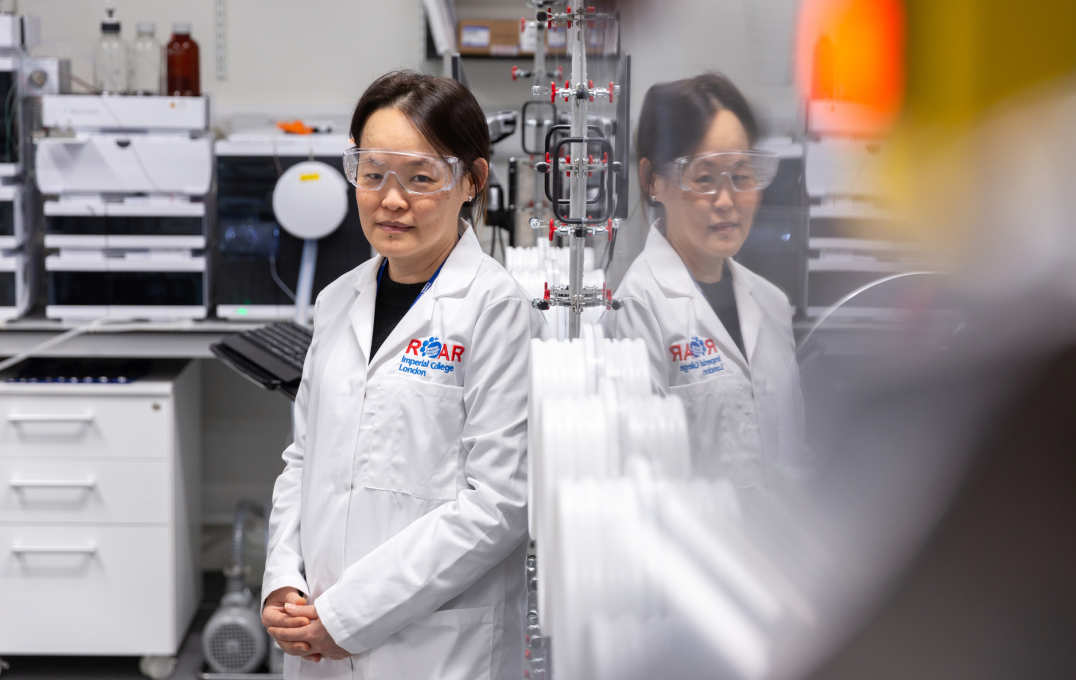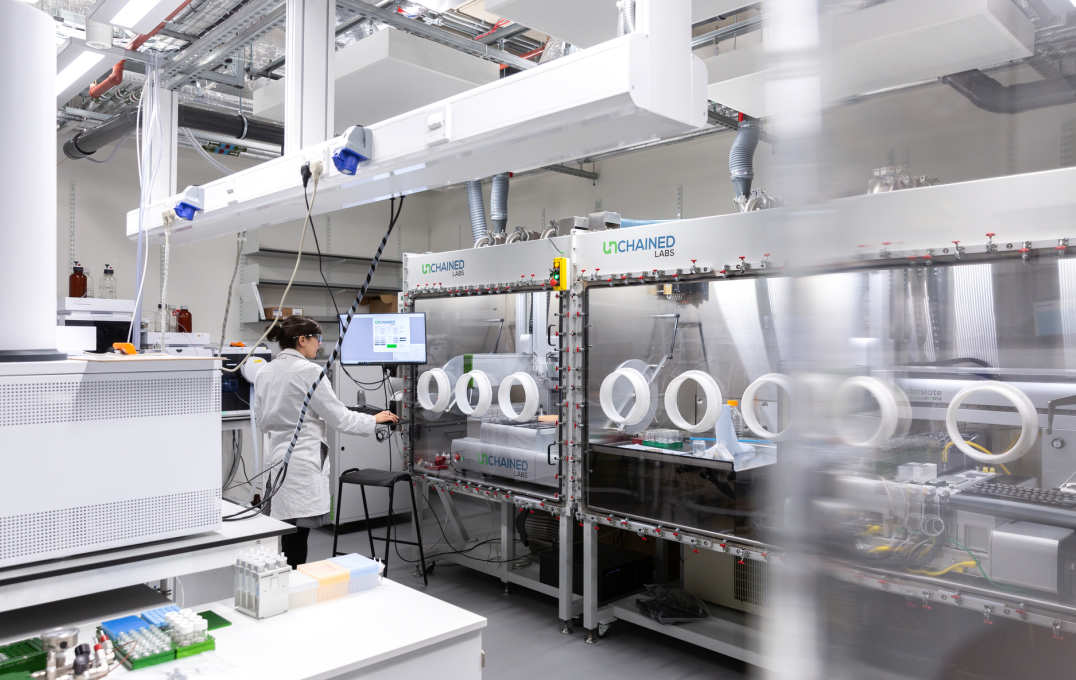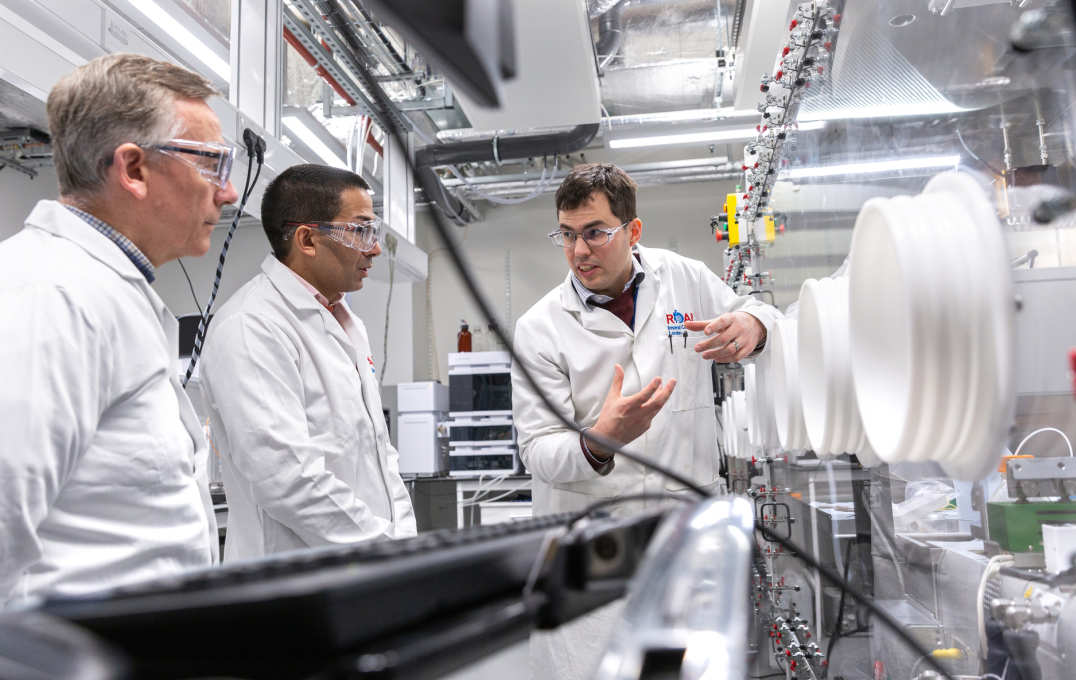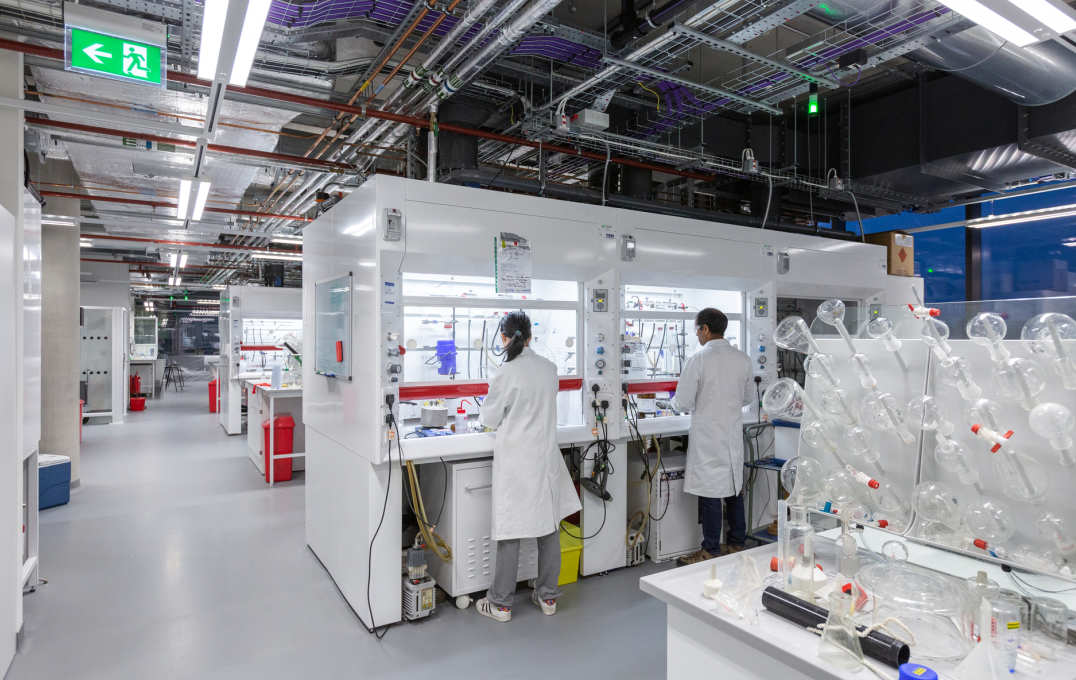First-of-its-kind automatic chemistry facility opens at Imperial
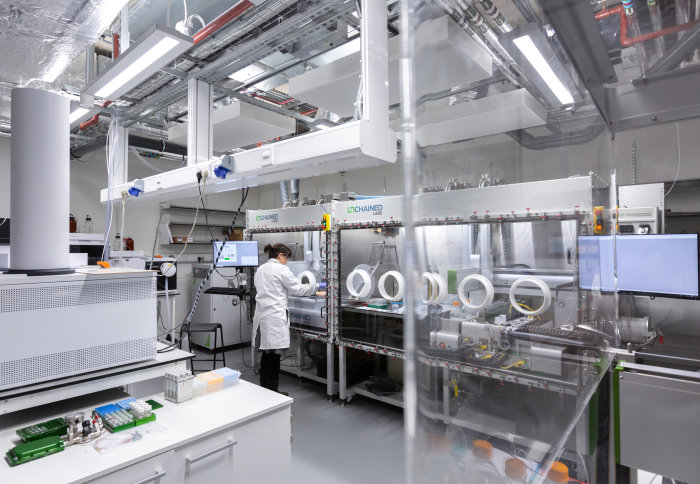
The Centre for Rapid Online Analysis of Reactions (ROAR) is the first national centre for the study of reactions, focusing on data-centric chemistry.
ROAR is the flagship Research Facility for the Dial-a-Molecule Grand Challenge, which aims to make the synthesis of any desired molecule ‘as easy as dialling a number’.
ROAR will speed up the discovery of new medicines, materials and agricultural chemicals in a cheaper, cleaner and more sustainable way. Professor Mimi Hii
ROAR was established with £2.8m in funding from the Engineering and Physical Sciences Research Council (EPSRC), £1.1m from Imperial, and £774,000 from industry in money and equipment. Launched on 30 January, the Centre is based in the new Molecular Sciences Research Hub at Imperial’s White City campus.
Finding the right way to synthesise new molecules with desired properties, such as potential medical drugs or novel materials, can take a long time, sometimes years. This is because synthesising molecules can take many complex steps, each of which needs to be optimised by finding the best conditions – such as temperature, pressure and length of time for the reaction.
Identifying optimum reaction conditions requires many experiments to be run under a range of conditions. This can often take years and mean the final molecule is a compromise – the easiest to make molecule with acceptable function, rather than being the best for the job.
Data-driven approach
ROAR will tackle the challenge by automating chemical process and creating a wealth of data about the synthesis steps involved in creating a new molecule.
Using state-of-the-art equipment, including robots that automatically set up chemicals for experiments and machines that take samples throughout the duration of the experiment, the Centre will be able to precisely measure at which conditions each reaction step is working optimally.
Data on what makes the perfect synthesis for each molecule will mean the reactions can be reproduced more easily. Optimisation of each reaction step of the overall synthesis will also avoid wasting materials and energy, making the process more sustainable and cost-effective.
The availability of high-quality and reproducible data will also enable future developments in machine-learning and AI in the chemical sciences.
Director of the Centre, Professor Mimi Hii from the Department of Chemistry at Imperial, said: “ROAR will speed up the discovery of new medicines, materials and agricultural chemicals in a cheaper, cleaner and more sustainable way.
“As well as using state-of-the-art equipment, ROAR will develop new techniques in running efficient experiments and evaluating the data that emerge from them.”
Collaborations and colocations
The Centre will collaborate with industry partners to continually improve the equipment and protocols for rapid molecular synthesis, with the aim of becoming the go-to provider for solutions for industrial and societal challenges.
It will also train PhD students and participate in exchanges, such as with the Scripps Research Institute in the USA, which runs a similar facility.
The new home of Imperial’s Department of Chemistry at the Molecular Sciences Research Hub was chosen to host ROAR due to its interdisciplinary research mission, hosting researchers with joint appointments, and colocation opportunities for industry partners at White City.
Article supporters
Article text (excluding photos or graphics) © Imperial College London.
Photos and graphics subject to third party copyright used with permission or © Imperial College London.
Reporter
Hayley Dunning
Communications Division
Thomas Angus [Photographer]
Communications Division
